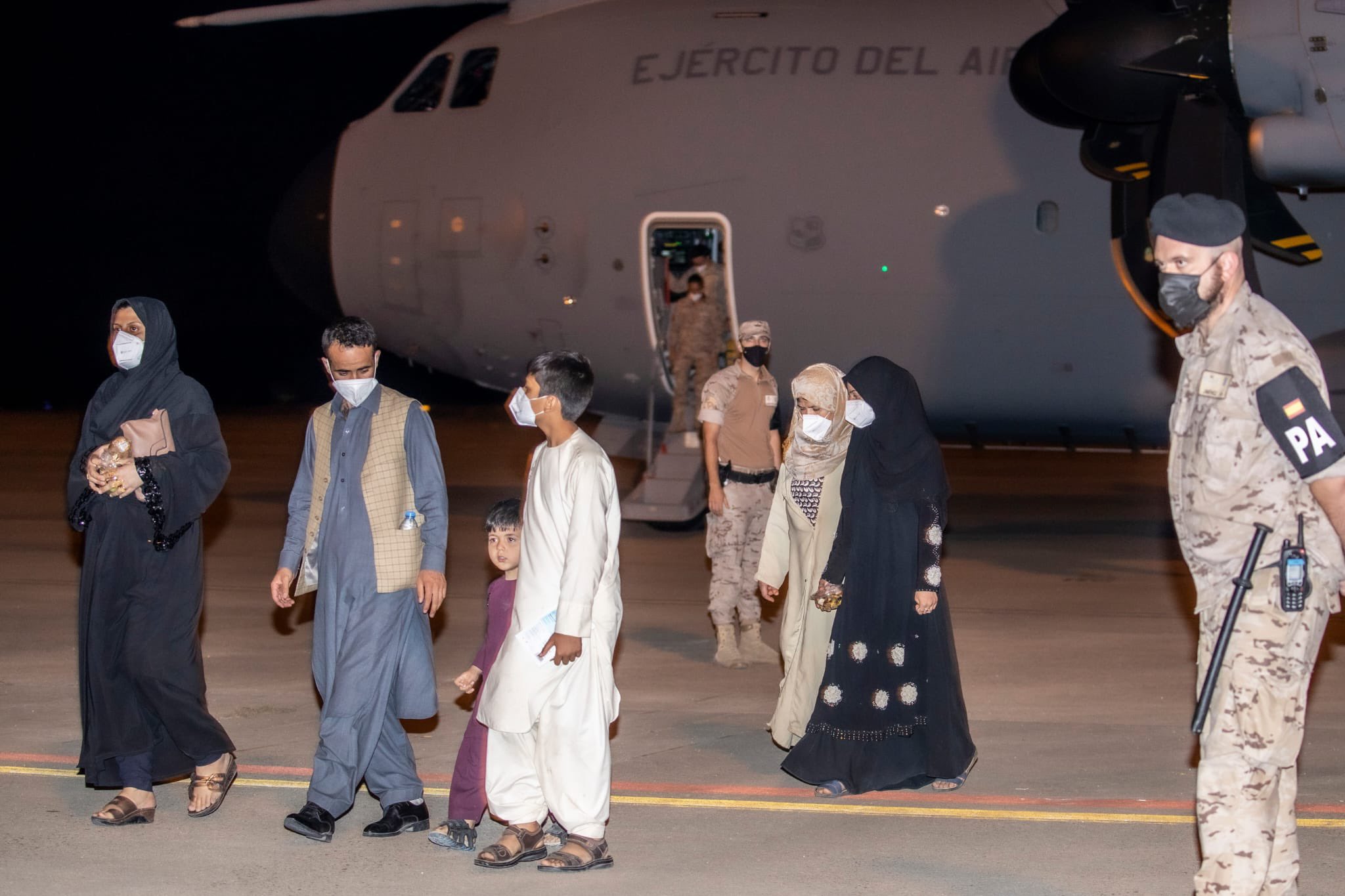The Diplomat
A group of 53 people (5 Spaniards and 48 Afghan collaborators) arrived in Madrid early this morning, aboard the A400M aircraft of the Spanish Air Force that picked them up yesterday at Kabul airport and transferred them, as a first stop, to Dubai.
The plane left Dubai late in the afternoon for the Torrejón de Ardoz air base in Madrid, where it arrived in the early hours of this morning. There they were received by the Ministers of Foreign Affairs, European Union and Cooperation, José Manuel Albares, and of Inclusion, Social Security and Migration, José Luis Escrivá.
Among the first evacuees from Afghanistan were the five Spaniards who were still in the country, as well as Afghan embassy staff, although not the ambassador, Gabriel Ferrán, or his deputy, Paula Sánchez, who are still in Kabul, along with some members of the security forces. Some of the Afghans and their families who have worked for both the troops and Spanish aid workers in recent years have also been transferred.
The A400M is carrying a crew of soldiers from the Army’s CIMIC battalion and the Air Force’s Air Deployment Support Squadron (EADA). Although it can hold some 140 people, the difficulties in Afghanistan in gaining access to Kabul airport have prevented more people from being picked up, mainly Afghan collaborators and their families, in the short time that the planes are allowed to land, load and take off.
Albares pointed out on his Twitter account, after the arrival of the first plane in Madrid, that “there are no Spaniards left” in Afghanistan, except for “those necessary to continue the evacuation”.
For his part, Escrivá explained that the Afghans “will stay for a maximum of 72 hours in a temporary facility and will then be transferred to our reception system resources, where their integration process will begin”.
Meanwhile, another Air Force aircraft was still in Dubai yesterday afternoon, awaiting permission to fly to Kabul to continue the evacuation process. A third aircraft, in this case a medical aircraft, has already flown to Dubai to join the operation, in case it is necessary to treat some of the people to be evacuated, in case they are ill or injured.
Yesterday, after several days in which the opposition groups, mainly the Popular Party, have demanded the appearance of the President of the Government, Pedro Sánchez, to explain what he is doing to achieve the evacuation of the Spaniards from Afghanistan, Moncloa released a statement in which it assures that the head of the Executive is following the whole process together with the Ministers of Defence, Margarita Robles, and Foreign Affairs, José Manuel Albares.
In addition, Moncloa announced that Sánchez will today chair the first meeting of the ministers who form part of the working group set up within the government “to supervise the repatriation operation of the Spanish contingent in Afghanistan”.
According to the information provided, Sánchez, who has not interrupted his holidays, will hold the meeting with the aforementioned group by videoconference, which is coordinated by the Minister of the Presidency, Relations with Parliament and Democratic Memory, Félix Bolaños, and also includes the Ministers of Foreign Affairs and Defence, as well as the Minister of the Interior, Fernando Grande Marlaska, the Minister of Health, Carolina Darias, and the Minister of Inclusion, Social Security and Migration, José Luis Escrivá.
The Presidency of the Government assures in its communiqué that the meeting was preceded by multiple conversations between the president and the ministers involved, as well as several technical meetings held by representatives of the different departments.
Finally, it indicates that the aim of the group is to “coordinate the return of the Spanish embassy staff in Afghanistan and the Spaniards who remain in the country, as well as the Afghan collaborators, with the aim of guaranteeing a safe return”.
On the other hand, according to diplomatic sources consulted by Europa Press, the EU will cover all the costs of the operation to evacuate Afghans who have worked for the bloc in recent years and whose lives are under threat now that the Taliban have taken control of Afghanistan, to Spain and then transfer them to the other member states.
The operation is still at an embryonic stage, as the EU is finalising the list of those in this situation, to which some of their family members should be added. The EU’s High Representative for Foreign Policy, Josep Borrell, said on Tuesday that the number is expected to be between 380 and 400.
The Spanish government has offered to serve as a centre for the arrival of all these Afghans, who will then be distributed among the other member states, in quotas that have yet to be determined. Between 40 and 60 Afghans could remain in Spain.







